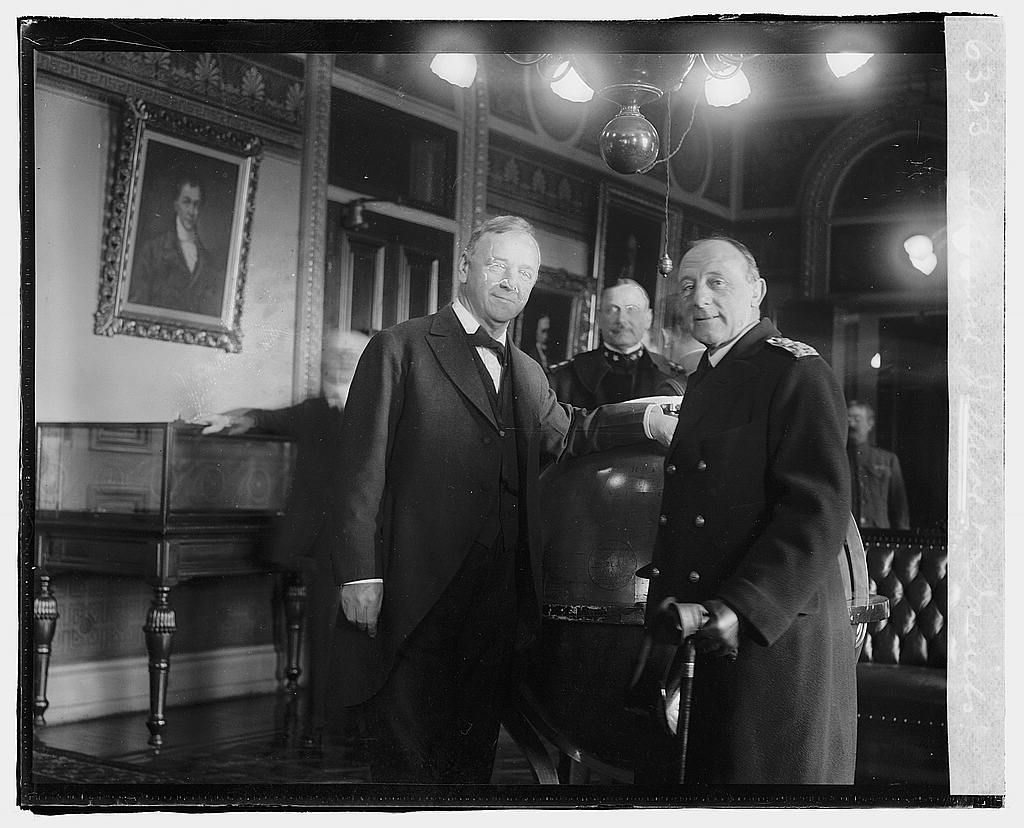Heroic late war Polish poster.
The Polish Soviet War commenced on this date in 1914 when Polish troops were allowed to occupy a town in current day Belarus by the Germans, as part of the German withdrawal from the region, and were soon thereafter attacked by the Red Army.
The war would go on until March, 1921.
The results of the war are surprisingly disputed. By most measures it would have to be regarded as a Polish victory given that they held off the Red Army even to the point of defending Warsaw against a Soviet offensive. Moreover, the first Red Army attack had been given a name that suggested Warsaw was its goal.
Soviet propaganda poster showing the Red Army as liberators.
On the other hand, the initial Polish counteroffensives had been enormously successful and the Polish Army had been able to maintain that stance for quite some time during the war, advancing into territory they disputed in Russia and Ukraine. The reversals in fortune were enormous and the Poles nearly retreated to the German border in the late stages of the war. Still, Red Army losses during the Battle of Warsaw late in the war were so severe that the Poles were given a border that closely approximated that of the 1772 partition and therefore granted them most of the territory they were seeking,including the debatable Lithuanian town of Vilnius. By and large, the Poles gained the territory they were seeking, although less than that which Pilsudski would have wanted for a greater Poland.
Polish propaganda poster showing Polish cavalry, which in fact there was a lot of, fighting bestial troops of the Red Army.
The war at least arguably put an end to the Trotsky vision of marching through Poland and on into Germany and likely cemented a growing rift between Stalin who wished thereafter to build Communism in what remained of the Russian Empire as opposed to Trotsky who argued for an immediate global revolution.
Polish solders with captured Soviet battle flags. The Red Army may have been a new people's army in theory, but in the field it kept the trappings of earlier armies in having battle flags.
Poland, it might be noted, founds itself in substantial wars from the very first moment of the "Peace" of November 1918. It's amazing it survived as a state. It fought all of its neighbors to some degree in one way or another.
Meanwhile, in Portugal, a quixotic effort to restore the Portuguese monarchy, which had never received the endorsement of the former Portuguese royal family, ended and with it the self declared Portuguese Monarchy Of The North.
Portuguese monarchist who fought for a monarchy whose former leaders didn't endorse it.
It's flat out bizarre to contemplate a rebel movement to restore a monarchy occurring in 1919 when in many other nations rebels had successfully operated to depose their nation's monarchies. Yet, in Portugal, such an attempt was oddly made. It's hard to figure really, but it is perhaps best understood in the context of it being an ultra conservative revolution with no place to go.
Well, closer to home, sort of . . . .
The Tribune had a headline that today would cause people to recall its occasional nickname, the "Casper Red Star", what with its reference to a "World Constitution". This referred, of course, to a stout League of Nations.
Rumors were afloat about bribery being a factor on a bill for a new county and a "dry" rally was being planned.
And news of a big blizzard was being reported everywhere in the state.
Hopefully that blizzard wouldn't delay the return of the returning Guardsmen of the 116th Ammunition Train which were anticipated to be home within a week.
The Cheyenne paper remembered it was Valentine's Day.
The second Cheyenne paper noted that communications with the East hung on by a thread, due to the blizzard.
Interestingly, but also without details, that paper also reported that "Dean Huston", a Cheyenne clergyman, would be choosing between two parishes for his new assignment back east. No other substantial details were provided, but it's likely that he was an Episcopal churchman as the Episcopal Church used that title and that would make sense in context.
And finally the pressed for space Laramie Boomerang resorted to Rooseveltian phonetic spelling, as Wyoming papers in this era occasionally did, for their headline, changing Cheyenne to Chian.
Theodore Roosevelt, who in spite of his genius was somewhat spealling challenged, had advocated for this movement which would have altered the somewhat bizarre spellings common in English to phonetic ones at large and tried writing that way himself for awhile, but like everyone else, he gave it up. For a brief time, however, Wyoming newspapers would resort to it if headlines seemingly required it, as here.

















































